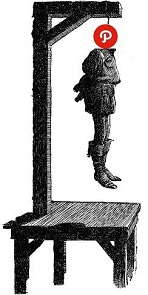 If someone needed a proof of how volatile is the tech industry (and the internet industry more specifically), Path story provided it in full lately. This is a story of a mobile social networking service that managed to carry away many enthusiastic users and praises in a short period of time while after one mistake/error got caught in the biggest shitstorm, well, of the week…
If someone needed a proof of how volatile is the tech industry (and the internet industry more specifically), Path story provided it in full lately. This is a story of a mobile social networking service that managed to carry away many enthusiastic users and praises in a short period of time while after one mistake/error got caught in the biggest shitstorm, well, of the week…
Before i elaborate about the scandal blowout itself, i want to go back to the beginning of the month. Path has just received the Crunchies award for best design while showing significant growth rates along the way. Riding on the waves of success, the future seemed very promising and bright for the young (launched in November 2010) social networking mobile app.
But then, things went downhill.
It has been revealed that Path is copying all the user’s private information from his phone (names, phone numbers and even emails) to the company’s servers without any permission or even some seemingly disclosure. Needless to say that this discovery caused a mass rage from users that felt their trust been violated and hyperbole bloggers that compete who is trashing Path more.
The folks at Path grasped pretty quickly how explosive the situation is as they might lose their most loyal user base and about a day after the affair became widely public they released a new update for their app, where the users are ASKED to grant access for their personal information, so the app could find their friends on the network (as other sites do).
In addition, the company also released a real compelling apology to the users by its founder and CEO, Dave Morin. He also explained that all previously stored data has been DELETED completely from the company’s servers. But apparently it didn’t satisfied some writers…
Nick Bilton from the New York Times (which is normally an excellent writer/blogger/journalist/Tweeter) has published a second wave of anger towards Path and its founder David Morin. In his article, not only that he rants about Path’s carelessness (and about all Silicon Valley’s startups) but also hinting that this kind of practice could harm regime-protesters from the Middle East!
Really Nick? Path copying address books will lead to Middle East arrests? Don’t get me wrong, I also think that companies (especially from the social networking industry) should be extra safe when dealing with people’s personal information, but mentioning it in the same breath with dark regimes seems a bit exaggerated, don’t you think?
Nick is talking about COMPANIES responsibility, but what about WRITERS responsibility (especially ones that works for a media giant like the New York Times)? Aren’t we obligated to report and write in the most objective, balanced, proportional, honest way we possibly can? Just as social networking startup practices have tremendous affect, so as writers words…
Just a point to think about.